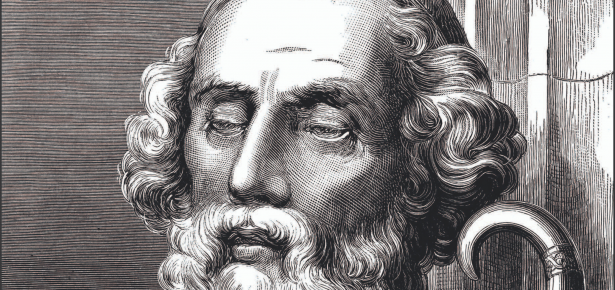
My book Aristotle on Thought and Feeling concerns the relationship between thought and feelings (including desires), a topic that has exercised philosophers, psychologists, poets, novelists, and, most recently, neuroscientists. I concentrate on the philosophical aspects of Aristotle’s account and his account of human psychology, but I also pay attention to Aristotle’s references to Greek tragedy. For example, I argue that Aristotle’s discussion of the young and impressionable Neoptolemus in Sophocles’s Philoctetes throws light on the way in which Aristotle thinks that thought and feelings develop in the face of good or bad external influences, a question important to social scientists and concerned citizens who are interested in moral education. I also discuss the aesthetic side to moral virtue, another contentious issue in Aristotelian scholarship.
My central thesis is that Aristotle’s account of the relationship between thought, desires and feelings in the good person is sui generis, contrary to the view that reason (thought) should be lording it over its minions—feelings and desires, or that thought should merely be an instrument in the employment of feelings and desires. These two alternative views descend from the philosophers Kant and Hume, but they are to be found in everyday conversation as well, and are often attributed to Aristotle himself. According to my interpretation of Aristotle, in the good person correct thought, feelings and desires are interdependent, with none taking precedence over the others. The main part of my book is devoted to explaining how this takes place, and how we can become good people. (I also explain what happens, according to Aristotle, when it does not take place, addressing questions about how people act against their own better judgment [the phenomenon of akrasia], and how we are to understand the psychology of different types of bad people.) In particular, I argue that Aristotelian “choice’, a complex phenomenon that has no exact modern equivalent, combines thought, desire and feelings. Contrary to the prominent moral philosopher Elizabeth Anscombe, who says that “[t]he notion of “choice” as conceived by Aristotle is a very peculiar one. If it had been a winner, like some other Aristotelian concepts, would not prohairetic be as familiar to us as practical is?” I argue that it should be a familiar part of our vocabulary after all.
The chapters of my book are as follows: Chapter 1: The Psyche, Chapter 2: Aristotelian Feelings, Chapter 3: Developing Thought and Feelings, Chapter 4: Aristotelian Choice, Chapter 5: Akrasia, Chapter 6: Thoughtfulness (my translation of phronēsis, which is usually translated as “practical wisdom” or “prudence”) and Feelings, and Chapter 7: To Kalon (literally “the beautiful”) and Music.
Latest Comments
Have your say!